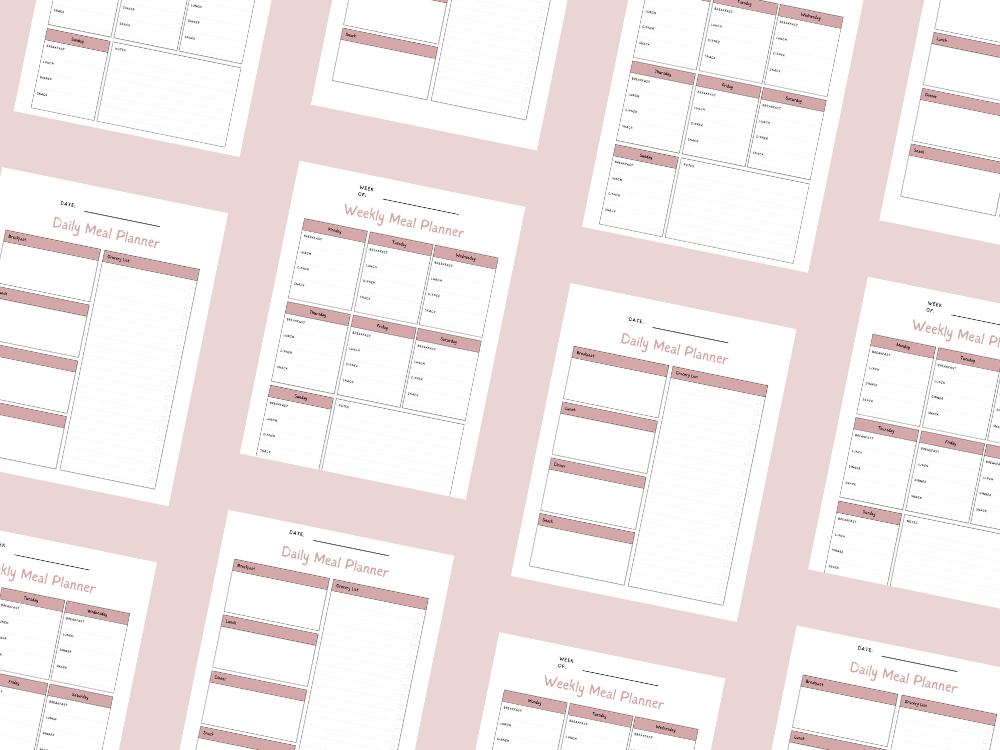APRIL 12, 2024
Building a solid financial foundation: 7 financial tips for young adults

Building a strong financial foundation is very important in life. It is a good idea to start or continue while you are a young adult.
The earlier you start the better. Because the earlier you start making good financial decisions the more money you can save and invest and the more diligent you can be when it comes to debts.
In this post, we focus on building a solid financial foundation with 7 financial tips for young adults.
We will begin by guiding you on how to set clear financial goals, budgeting, living within your means, starting an emergency fund and so much more.
So if you are interested in what we have to offer then keep reading.
Because we have to start at the beginning, we have to start with you setting clear financial goals.
Set clear financial goals
Before you can start working towards anything you have to set the goals that you want to reach.
You have to ensure that the financial goals that you are setting for yourself are clear and concise. If you have clear and concise goals you will be able to see what you want to work towards and the steps you need to take to get there.
Here is a step-by-step outline that can help you set financial goals:
Reflect on your values and priorities
Identify your short-term and long-term goals
Be specific with your goals and make sure they are measurable
Make sure to attach a time frame to each goal
Attach a monetary value to each goal
Rank your goals from most important to least important
Break down large goals into smaller goals or steps
Consider the SMART (Specific, Measurable, Achievable, Relevant, and Time-bound) criteria when setting your goals
Review and adjust goals as you move along on your journey
Create an action plan you are going to follow to reach your goals
Celebrate your achievements
Related: Mastering Personal Finance – Essential Tips for a Good Financial Future
Start drawing up a budget
Having a budget is a clear way to see what your income and expenses are. Make a list of your expenses and differentiate between your essential and non-essential expenses.
Below is a step-by-step outline of what you can add to your budget:
List your sources of income
If your salary is not your only source of income you can start by making a list of all your sources of income and getting a total.
Make a list of your expenses and differentiate between fixed and variable expenses
Your fixed expenses are the expenses that you pay every month and the expenses that only pop up here and there.
Also, outline your essential expenses and non-essential expenses so you can see where you can cut to save money.
Allocate some money to your savings
Always allocate an amount to your savings. It is important to have some savings for something big you want to buy or for when an emergency arises.
Create categories in your budget
Categories in your budget can include income, fixed expenses, variable expenses, savings, debt repayments, emergency funds, and other miscellaneous expenses, just to name a few.
Review and adjust your budget as time goes by
As the months go by and you’re using your budget you should be able to see how you can adjust your budget.
It is a good idea to adjust your budget as your income and expenses change.
Prioritize building an emergency fund
An emergency fund should be one of your top priorities. This is because it can provide some sort of security. After all, you know that you will have some money to fall back on in case an emergency arises.
Try to assign higher amounts to debts with high-interest rates
When working on a debt repayment plan you should always try to pay off the debts with the higher interest rates as fast as you can.
Related: Mastering Personal Finance – Essential Tips for a Good Financial Future
Live within your means
Living within your means can be anything from having a realistic budget, no unnecessary spending and not accumulating unnecessary debt.
If need be you need to track your spending to see where you are overspending and where you should cut off unnecessary expenses from your budget.
You should prioritize your essential expenses first before you think about anything else.
This is where is it very important for you to differentiate between your needs and wants.
Another important thing that you also have to keep in mind is to avoid lifestyle inflation. Meaning that you should avoid spending more once your income increases.
You should instead think about paying off all debt at a faster rate once your income increases and then adjust your budget after you’re done paying off debts.
Start an Emergency fund
You cannot talk about your finances without talking about setting up an emergency fund.
Having a safety net of cash to fall on is always a good idea as it will make you feel more stable and secure. You can allocate money in your budget for your emergency fund so that you do this regularly.
Have a goal you want to reach regarding your emergency fund so that you can focus on reaching other goals when you’ve reached your goal for an emergency fund.
For example, if you have reached your goal for your emergency fund you can then start saving for something else or use the amount that you used to allocate to your emergency fund to pay off your debt faster.
Related: Mastering Personal Finance – Essential Tips for a Good Financial Future – posted
Manage your debt
The ideal thing to do here would be to not get into debt at all, but at one point in our lives, most of us will eventually end up in debt.
Once you are in debt, it can be hard to get out of, but there are ways to make the process of getting out of debt so much easier.
Some steps that will help you manage your debt:
- Understand your debt
Make sure that you outline your debts and all their interest rates and premiums and the total amount.
- Prioritize your debt
Prioritize the debt with the highest interest rates. Make sure to pay more on the premiums on debts with high-interest rates while also paying the premiums for the rest of the debt.
- Create a budget
You can never go wrong with drawing up a budget as it can outline everything you will need to know regarding your finances.
- Cut unnecessary expenses
When outlining your budget you will be able to see your unnecessary expenses such as subscriptions that you forgot about.
It will be easy for you to see what you can cut.
- Pay more than the minimum
If you can, pay whatever amount you can higher than your premiums. This may seem small at first but you will see that it can make a huge difference later on.
- Consolidate your debt
To make it easier for you, can consolidate your debts so that you only make 1 payment monthly towards all your debts.
When doing this you need to make sure that the interest rates are better on the consolidation loan.
- Avoid taking more debt
While you are working on clearing your debt, and even afterward, you should avoid taking on more debt. What will be the use of getting out of debt if you will just keep on going in this circle?
Educate yourself on personal finance
It is such a good idea to educate yourself on personal finance as a young adult so that you can take control of your finances.
There are several ways you can go about educating yourself on personal finance namely:
Reading books on personal finance
You can take online courses to master personal finance
Follow blogs (like this one) that focus on personal finance
If you prefer audio, there are finance podcasts that you can listen to
You can attend financial workshops and seminars
Making use of financial apps can also be very helpful
In this day and age of social media, you can follow finance experts on social media
Related: Mastering Personal Finance – Essential Tips for a Good Financial Future
Seek financial advice if necessary
Since you are a young adult at this point, seeking financial advice may be necessary. As much as we all want to believe that we can learn about everything there is to know about personal finance on Google, there are still some instances where we may need help.
Luckily there are some professionals, like financial advisors who can help you with your finances.
Conclusion
As a young adult, using these tips can help you have a stable financial future.
No one is saying that it will be easy to make use of these tips, but it is worth it if you want a stress-free life when it comes to personal finance.
Related: Mastering Personal Finance – Essential Tips for a Good Financial Future
Important: This post is for informational and educational purposes only. This post should not be taken as therapy advice, financial advice or used as a substitute for such. You should always speak to your own therapist or financial advisor before implementing this information on your own. Thank you!


